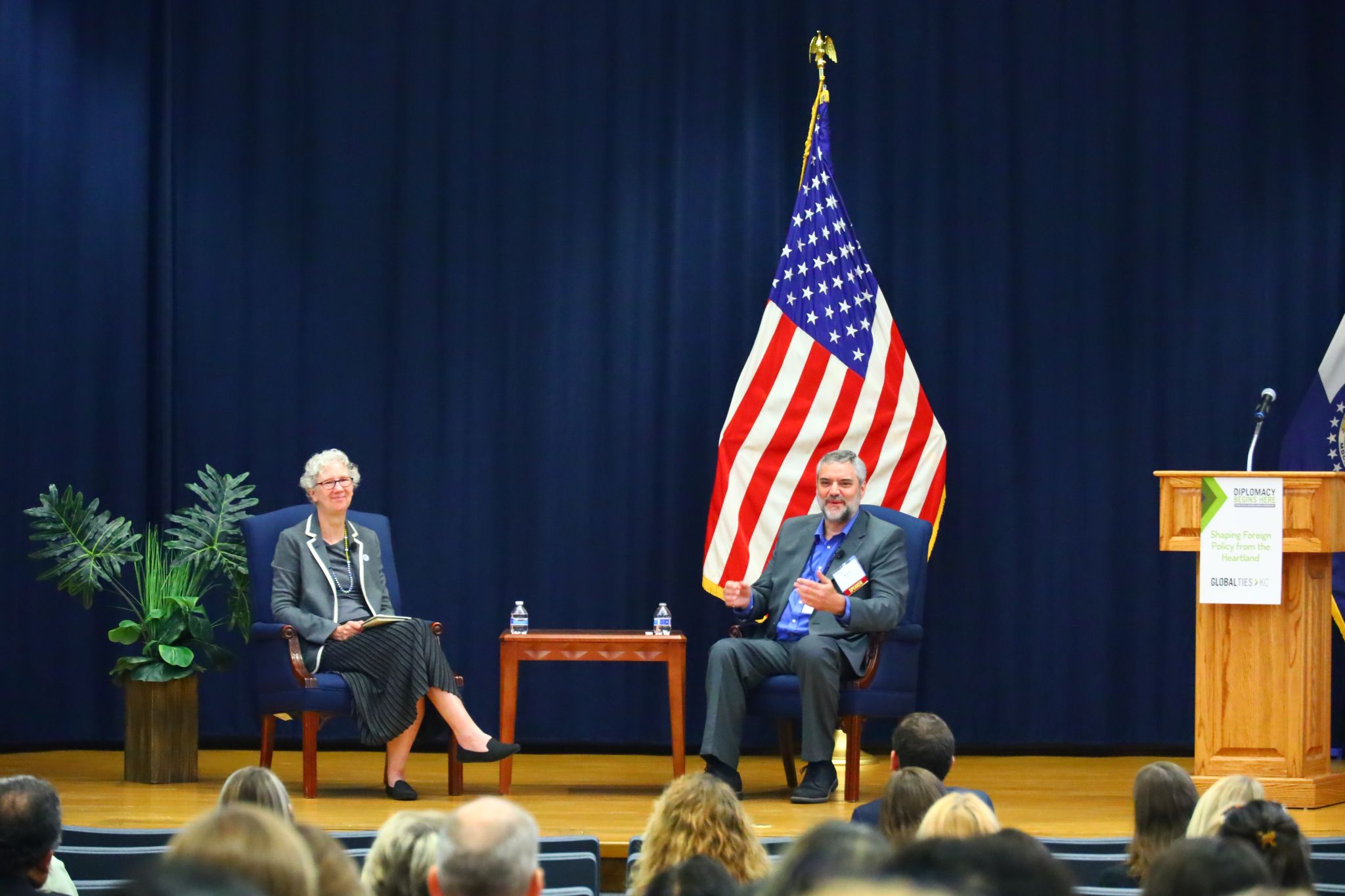By Amy Storrow, Director of the Office of International Visitors
Editor’s Note: February 16 is Citizen Diplomacy Day, a day first recognized by Congress in 2011 to commemorate our organization’s 50th anniversary and our Network’s important role in building people-to-people connections through international exchange. In celebration of this day, we asked leaders from across the Global Ties Network to reflect on how citizen diplomacy humanizes the world, both locally and globally, and why this work matters. The piece below is from Amy Storrow, a U.S. Foreign Service Officer who currently serves as the Director of the Office of International Visitors at the U.S. Department of State.
You could tell which house was my grandmother’s from far down the street. Oma flew the flag of the United Nations at all times, day or night. She had lived through two world wars, and she believed earnestly in peace. “Now dearie,” she’d say, as we sat down together on the sofa, “what are your thoughts on the Middle East?” I was around nine years old when she started asking this question; it was the 1970s. I learned from her that I needed to care about the world outside of my cozy town of 1,000 in Connecticut. And by watching—and feeling—her listen to me, I learned to listen to others. All voices counted.
Culinary diplomacy? Oma had it covered. Her signature dish was Chef Boyardee spaghetti with extra hamburger and water chestnuts, baked for hours. (It was actually delicious. I cannot account for why or how.) I can still hear her shouting across the room to a visiting Italian family friend, “E-MIL-io, is this better than the pasta you have in Rome?” She’d guffaw while Emilio smiled and looked down at his plate.
Oma sweet-talked the kids in our neighborhood into collecting cans and bottles, and we’d help her unload them at the recycling center. She wanted us all to understand the importance of protecting “the ecology,” to embrace our role as stewards, to relish the interconnected nature of life.
She had an unquenchable curiosity for ideas and people, in spite of her limited formal education. She’d dropped out of high school because she had dyslexia before it was understood, but she went back in her 70s and graduated, basking in the attention from the local paper about her accomplishment —and grateful that she never again had to tackle algebra. She lived in the world more fully than most.
And so, as I think of Citizen Diplomacy Day, I cannot help but think of Oma and how her work and passion shaped our whole community. And I think also, of course, of the role that all of you play in your communities.

Amy Storrow (left) and Mark Adams, Education Director at the Harry S. Truman Presidential Library and Museum, discuss how to integrate foreign and domestic policy at Diplomacy Begins Here Kansas City. Photo by Global Ties KC
You may not be aware of how deep an impression you make on the children on your block or downstairs in your apartment building who see, say, a group of 10 Nigerians arrive at your home for dinner. Some undoubtedly spend the evening with their phones learning about the most populous country in Africa and the “twins capital of the world.” Some might grow up to host international delegations, some might lead Community-Based Members, and some might end up in the Foreign Service.
Whether you host dinners in your home, wrangle meetings with super-fascinating NGO partners, walk side-by-side with our participants on beach clean-up volunteer activities, or discuss best practices in your field over coffee, thank you for all the partnerships you build.
You are shapers of the destiny of our world, one handshake, one baked Chef Boyardee casserole, at a time. Thank you for living fully in the world, and for sharing your vision. Happy Citizen Diplomacy Day!
